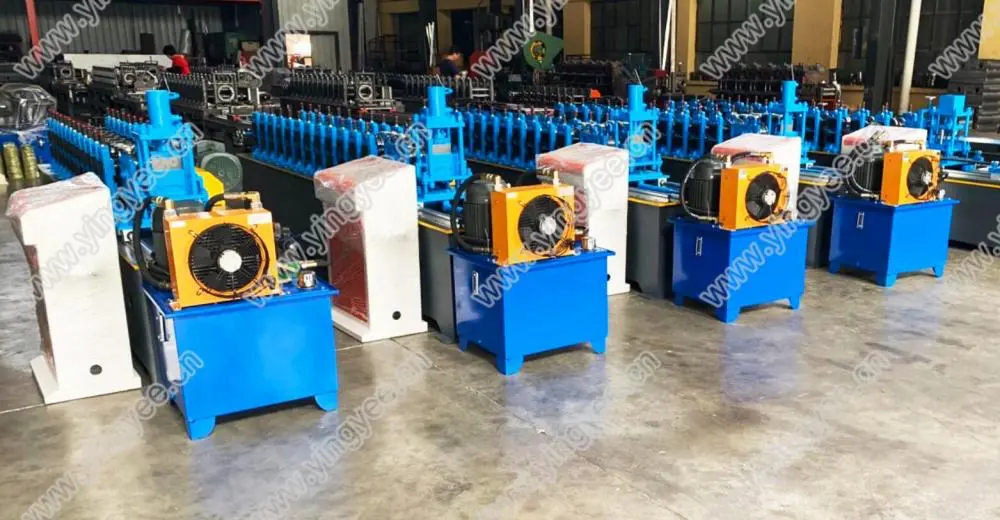
Understanding Roof Sheet Roll A Comprehensive Guide
In the construction and manufacturing industries, the term roof sheet roll refers to a specific type of rolled metal product used for roofing. Roof sheet rolls are essential for various applications, including residential, commercial, and industrial roofing projects. This article will provide an in-depth understanding of roof sheet rolls, their benefits, types, manufacturing processes, and applications.
What are Roof Sheet Rolls?
Roof sheet rolls are large, continuous lengths of metal sheets that are rolled up for easy transportation and installation. They are commonly made from materials like galvanized steel, aluminum, or coated steel, which provide excellent durability and weather resistance. Roof sheet rolls come in various thicknesses, lengths, and profiles to suit different architectural styles and building needs.
Benefits of Using Roof Sheet Rolls
1. Durability One of the primary advantages of roof sheet rolls is their durability. Metals like galvanized steel and aluminum are resistant to rust, corrosion, and other environmental factors, ensuring a long lifespan for the roofing material.
2. Lightweight Compared to traditional roofing materials like tiles or concrete, roof sheets are significantly lighter. This makes them easier to handle and install, reducing labor costs and time during the construction process.
3. Cost-Effectiveness Roof sheet rolls are often more cost-effective than other roofing materials. They require less maintenance and have a lower initial install cost, providing a sound investment for homeowners and businesses.
4. Versatility Roof sheet rolls are available in various profiles, including corrugated, standing seam, and tile effect, enabling them to complement various architectural styles. They can also be customized to meet specific project requirements.
5. Sustainability Many roof sheet rolls are made from recycled materials and can themselves be recycled at the end of their life cycle, contributing to sustainable building practices.
Types of Roof Sheet Rolls
Roof sheet rolls come in several types, designed for different applications
1. Metal Roof Sheets Typically made from galvanized steel or aluminum, these sheets are known for their strength and longevity. They are available in a variety of finishes and colors, offering aesthetic appeal alongside functional benefits.
2. Insulated Roof Panels These roof sheets incorporate insulation materials, providing excellent thermal performance. They are Ideal for energy-efficient buildings, as they help regulate indoor temperatures and reduce energy costs.

3. Fiberglass Roof Sheets These sheets offer high transparency and are often used in applications where natural light is desired. They are lightweight and easy to install, making them popular in greenhouses and industrial buildings.
4. Polycarbonate Roof Sheets Known for their high impact resistance and UV protection, polycarbonate sheets are commonly used in awnings, patios, and light wells.
Manufacturing Process of Roof Sheet Rolls
The manufacturing process of roof sheet rolls involves several key steps
1. Material Selection High-quality raw materials such as galvanized steel, aluminum, or coated steel are chosen based on the desired properties of the final product.
2. Cutting and Coiling The selected materials are cut into specific sizes and then coiled or rolled into sheets. This step is crucial for maintaining uniformity in thickness and width.
3. Forming and Profiling The rolled sheets undergo a forming process to create specific profiles, such as corrugated or standing seam designs, enhancing their structural integrity.
4. Finishing Depending on the desired aesthetic and protective features, the roofing sheets may go through additional processes like coating or painting. This not only enhances their visual appeal but also provides additional protection against the elements.
5. Quality Control Rigorous quality control checks are performed throughout the manufacturing process to ensure that the final product meets the industry's standards for durability, performance, and appearance.
Applications of Roof Sheet Rolls
Roof sheet rolls can be used in a range of applications, including
- Residential Roofing Homeowners often choose metal roof sheets for their homes due to their durability and aesthetic appeal. - Commercial Buildings Businesses utilize roof sheet rolls for warehouses, factories, and office buildings, providing reliable protection and low maintenance. - Agricultural Structures Roof sheet rolls are commonly used in barns, greenhouses, and other agricultural buildings due to their weather resistance and cost-effectiveness.
In conclusion, roof sheet rolls are a versatile and essential component of modern roofing solutions. Their numerous benefits, variety of types, and straightforward manufacturing processes make them a popular choice across various industries. Whether for residential, commercial, or industrial applications, understanding the value of roof sheet rolls can significantly impact the success of a construction project.